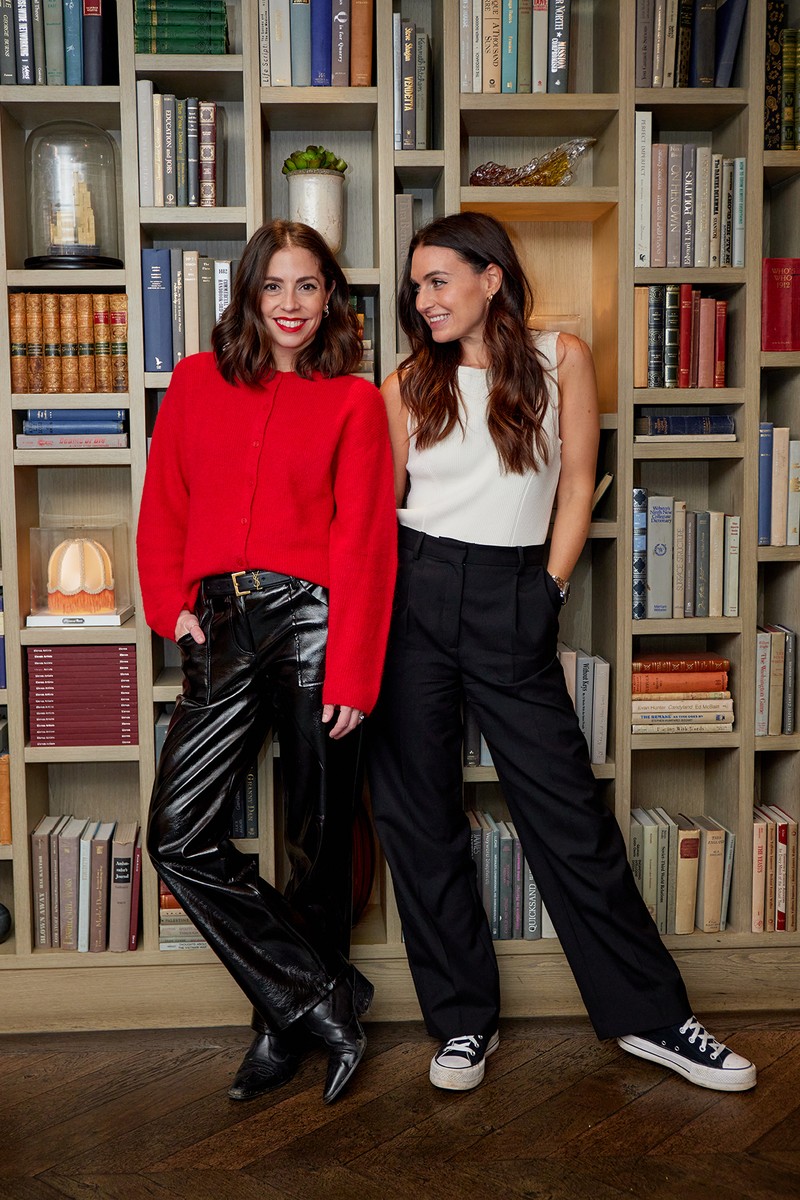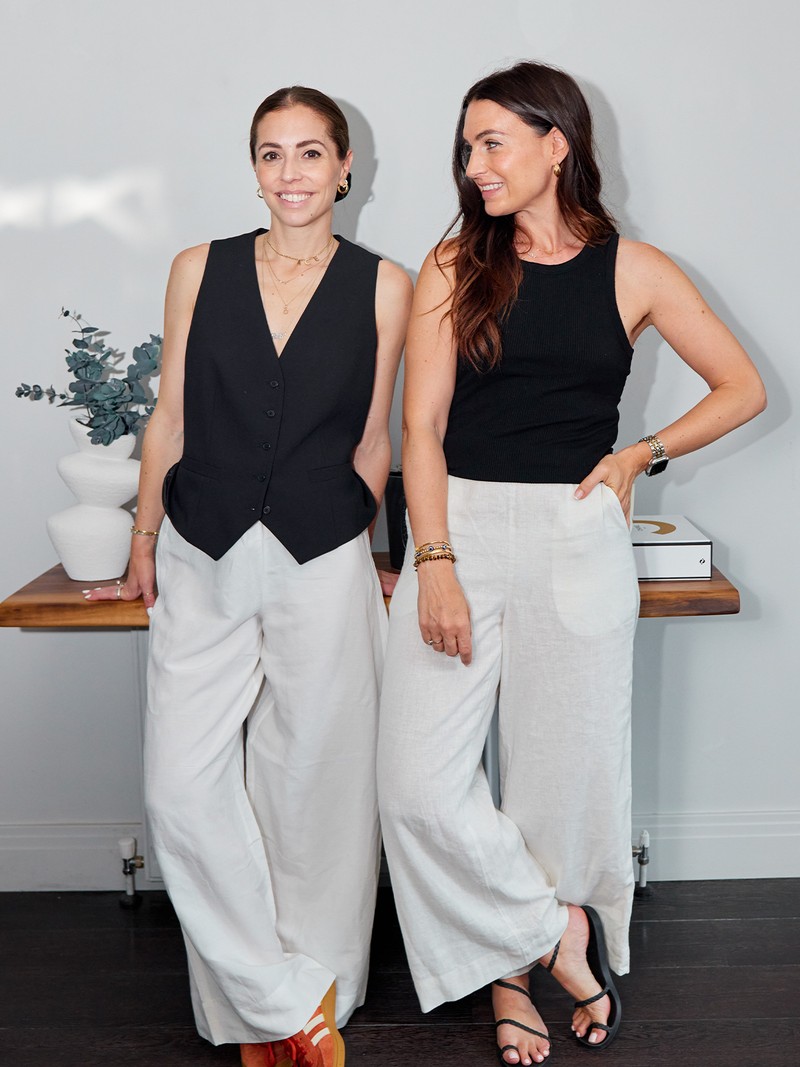
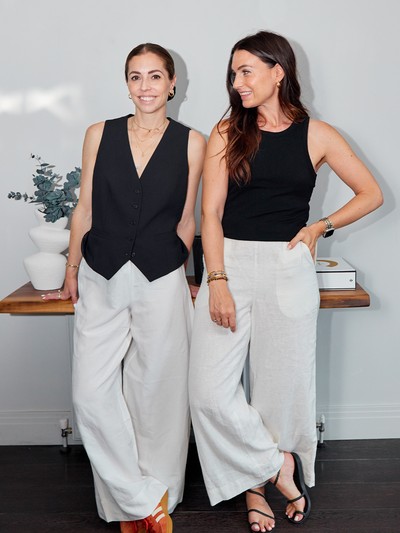
Me & My Faith: Gemma Rose Breger & Samantha Silver
Gemma: Being Jewish is so special, it’s like being part of this tiny little club. Only 0.2% of the world’s population is Jewish, so it feels like a privilege. It’s also about family. So much of what I do is because of my grandmother, my great-grandmother and my parents. The Jewish community is so supportive. It’s such a lovely, welcoming culture. Family and food are central to Judaism, and those are two of my favourite things in life.
Samantha: Friday night dinner has always been a big part of my life. Growing up, my family wasn’t in a very large Jewish community, but we always had Friday night dinner (Shabbat) and celebrated the main religious festivals. It wasn’t about being ultra-religious; it was more of a family thing. Every Friday, we’d have a big meal – usually roast chicken and vegetables. My non-Jewish friends would even join us, and after dinner we’d all go clubbing. It was such a nice tradition, rooted in togetherness. As I’ve grown older and had my own children, I’ve continued the tradition. Now, I make sure we have Friday night dinners at home with my kids, who are six and nine. Life gets so busy, but we all know that come Friday, we’ll sit down together and have that time. They really look forward to it – it’s a moment to switch off from everything and just be with family.
Gemma: Like Samantha, I didn’t grow up in a particularly religious environment either, and we both come from small Jewish communities – she’s from Sheffield and I’m from Glasgow. Shabbat is about rest, something we all need more of. It’s about switching off, starting at sunset on Friday and lasting until sunset on Saturday. Ultra-Orthodox Jews won’t use phones or electricity during this time, but for me it’s more about mindfulness, tuning into myself and my family. We also have Shabbat dinner every Friday and rotate between my house and my family’s or in-laws' houses, keeping the tradition alive. Even when life is hectic, it’s comforting to know we’ll have this time together.
Samantha: My faith was always there in the background, but it became more meaningful when I had children. Once they reached about five or six, I felt it was time to pass on some of the traditions I grew up with. We started doing Friday night dinners regularly, and now we go to synagogue twice a year on the High Holy Days. These are particularly important for us. We celebrate Rosh Hashanah, the Jewish New Year, and Yom Kippur, the Day of Atonement, ten days later. Rosh Hashanah is the one time of year when even those who don’t usually attend synagogue will go, even if just for a short time. Yom Kippur is a more reflective day, a time to think about the past year and atone for any wrongs. I remember as a teenager, I’d think, ‘Anything bad I’ve done over the past year – especially things I’ve said to my parents – it’s fine now. It all gets wiped away!’
Rosh Hashanah is always a special time for us. It usually falls in September, and I remember as a kid, my parents would take me out of school for the day so we could go to synagogue (shul). Now, I do the same with my kids. We go to shul in the morning, and it wraps up around lunchtime. After that, we have a big family lunch – a real mix of in-laws, extended family and distant aunties. The day is all about family, and my children have great memories of playing in the garden with cousins. We also follow the tradition of dipping apples in honey, which symbolises a sweet new year, and we have a round challah, which signifies the cycle of the year.
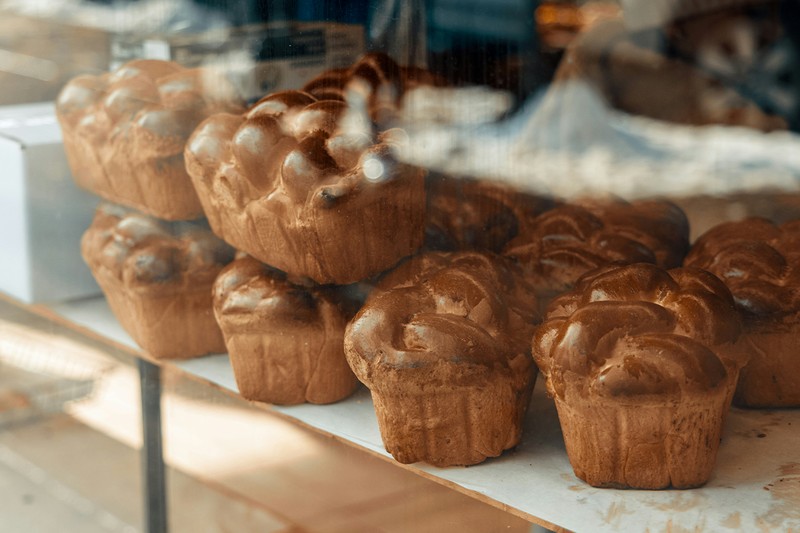
Gemma: It feels like a fresh start, especially because it always coincides with the new school year. There’s this sense of a new beginning, which I find really refreshing. It’s a time to pause and reflect, but also a time to celebrate with family. The timing feels like a natural reset for everyone.
Samantha: For lunch, we keep it simple. We usually do a buffet – different salads, chicken, meatballs and rice. I don’t think there’s any specific food tradition beyond the apple and honey and the round challah. For other festivals, there are more traditional foods, but Rosh Hashanah is more flexible. It’s just about being together, really.
Gemma: Growing up, our house was kosher, but over time, as my sisters and I got older, things changed. My parents weren’t super strict, but the rule was that nothing non-kosher came inside the house. If we wanted McDonald’s, we had to eat it outside on the doorstep! My husband and I are raising our kids as Jewish, but keeping kosher doesn't feel essential to us. We wanted to be relaxed about it.
Samantha: I don’t keep kosher either, but I have my own little rules. I won’t have seafood in the house, but I’m happy to eat it when I’m out. I’ve just been to Italy and had amazing seafood pasta every day, but I felt this anxiety about posting it on Instagram – like someone in my family’s circle would see it and judge me! It’s odd, but everyone has their own boundaries.
My husband’s best friend keeps a completely kosher house. When they come over for dinner, I make sure everything is kosher-friendly, and I wouldn’t dream of serving a dairy dessert after a meat meal. It’s all about respect, and everyone finds their own level of observance that works for them. Some will keep a kosher home but still drive on Shabbat or watch Netflix. It’s personal to each family.
Samantha: Hanukkah is another lovely festival, especially with kids. It usually falls around Christmas, and this year, it’s actually on the same day as Christmas, which is rare. As a child, I celebrated both. We’d have Hanukkah presents and then Christmas presents – it was brilliant. I still do the same for my own kids now. They get to experience the best of both worlds, and it’s a tradition I love passing on to them.
Gemma: Hanukkah is one of my favourites because it's the festival of light. We light the menorah, adding a new candle each night for eight nights. Growing up, we’d get small gifts each night – nothing fancy, but it was so special. Now, I love shopping for my kids, finding thoughtful little gifts. Last year, for example, my mum got all the grandkids their own menorahs. My son got a football menorah, and my daughter got a leopard print one. They’ll keep those for their own children one day.
When it comes to Jewish food, chicken soup is number one – it’s the Jewish penicillin and the answer to everything. If you’re sick, heartbroken or having a bad day, you have chicken soup. I’m not much of a cook, and when I first met my husband, I had no idea how to make it. Thankfully, my mum or mother-in-law brings it over for Friday night dinners now, but chicken soup is such a big part of Jewish tradition. Recipes get passed down through generations. Friday night dinners are typically chicken with roast potatoes, and that’s always the base of what we do.
For Hanukkah, we have doughnuts, which are a key part of the tradition because they represent the oil from the story of Hanukkah. And then for Yom Kippur, after fasting for 25 hours, we all break the fast with different foods. Some people go for smoked salmon and cream cheese, but I personally break my fast with my grandma’s bread cake, which is called Babka, it’s a chocolate and cinnamon butter cake. Again, so many family traditions revolve around food.
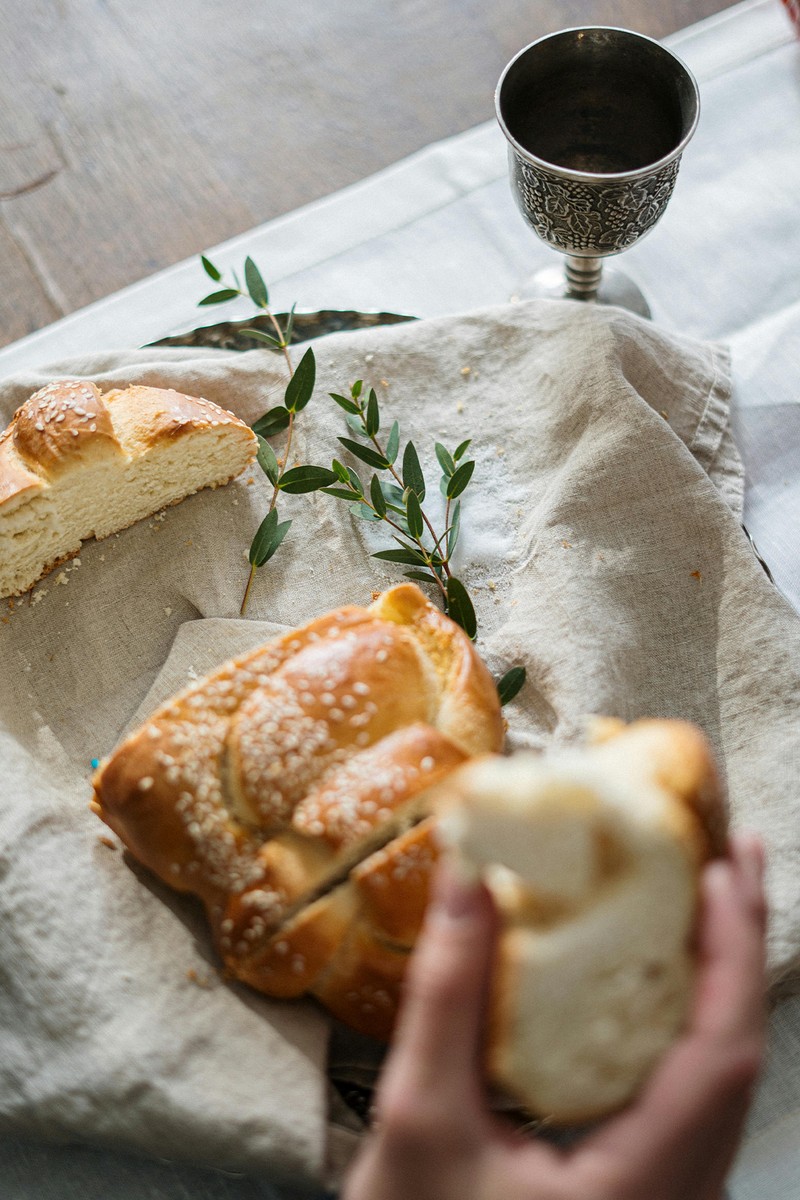
Gemma: It’s not just my Jewish friends who come to our dinners; my non-Jewish friends come with their children too, and it’s really nice to share that part of my life with them. I think it’s important to educate people about different cultures and traditions. We’re very welcoming in that way. When it comes to raising my kids, I want them to understand the significance of these traditions. I grew up quite religious, keeping kosher, and going to synagogue on Shabbat. It's important for my kids to learn about their culture, but I also want them to see that it’s okay to not have all the answers and that they can choose their own path when they’re older. I want them to know where they came from.
Samantha: I agree. It’s so important to pass on the traditions. I want them to be proud of their roots, and I want them to have the freedom to find their own connection to their Jewish identity.
Gemma: Synagogue is also an important part of our life, especially around big festivals like Rosh Hashanah, when we go to services together. There's a children’s service that’s really fun now; when I was a kid, it was boring, but they’ve made it much more engaging to keep kids interested.
Even for adults, synagogue can be fun. It’s kind of a fashion show sometimes. You have to dress modestly, and if you’re married, cover your head with a hat or a fascinator. I always joke that single girls go to synagogue without a hat so they can meet someone. It’s a bit of a matchmaking spot, honestly.
Gemma: After the attacks on October 7th last year, antisemitism became heightened to another level. We realised the importance of speaking louder and prouder about our identity. It made many Jewish people want to share their stories. Growing up, I wore Star of David necklaces, but after being on the internet for a while, I took them off because I felt scared to show my Jewish identity due to anti-Semitism. Now, however, I feel more compelled to express my pride in being Jewish. There are so few of us, and it’s important to show that we’re just girls from London who are Jewish, sharing how lovely our culture is.
We want to share our perspective on modern-day Judaism and educate people as much as we can. The feedback from our audience has been lovely; people genuinely want to know more and often ask questions. We make sure to explain every festival – what it is and how we personally celebrate it – and it’s been surprising how well received this has been. There’s a lot of misunderstanding out there, and it’s crucial for us to show the positive side of our religion. We may face more hate for doing this, but it’s so important to talk about what we’re passionate about, especially given our position.
Samantha: Joy, love and light are what this is all about, especially with Rosh Hashana, Yom Kipper and Hanukkah all fast approaching. Jewish festivals often commemorate overcoming dark times and finding light, which is a core theme in Judaism – looking for positivity, hope, and joy.
Gemma: For anyone reading this who is also Jewish, my advice is to connect with your roots. Ask family questions about your experiences, like what it was like growing up as a Jewish kid. My grandma has such rich stories about her childhood in Glasgow, and learning about our family's history can make you feel more connected. If you don’t have family ties for any reason, going to a Friday night dinner will instantly make you feel at home. There are many beautiful aspects of Judaism that can seamlessly fit into modern life if you look for them.
DISCLAIMER: We endeavour to always credit the correct original source of every image we use. If you think a credit may be incorrect, please contact us at info@sheerluxe.com.
